Which was the last Soviet republic to declare complete independence from the USSR ahead of the Soviet Union’s official dissolution on December 26, 1991?
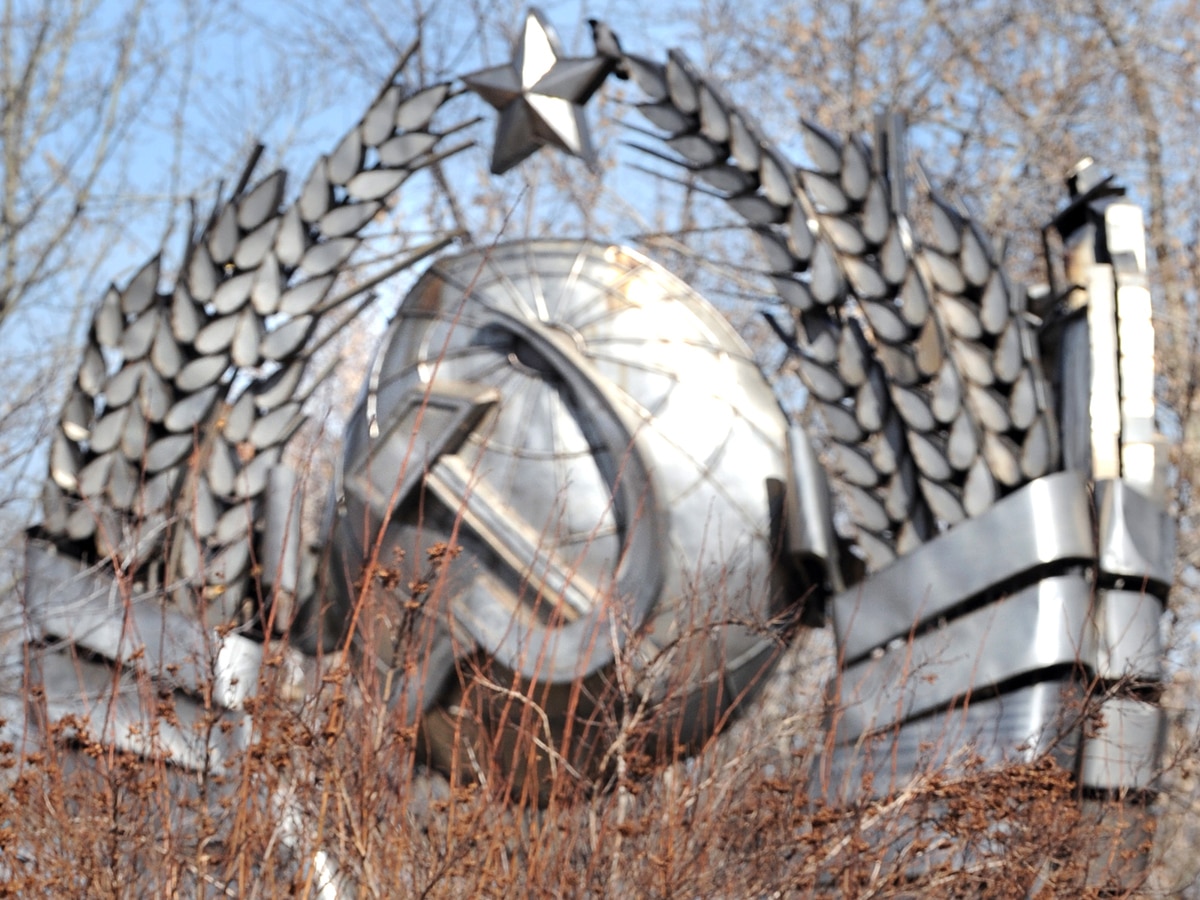
The USSR Quiz: 15 Questions For 15 Republics
On December 25, 1991, Soviet President Mikhail Gorbachev stepped down from power with the declaration that “We live in a new world.” The Soviet Union would be dissolved officially the next day.
The collapse of the USSR and the birth of 15 countries in its wake still powerfully impact the regions Current Time covers. Join us on a trip back in time to the last years of the Soviet era and the beginning of a period that would test preconceptions about both sovereignty and democracy.
Incorrect. The answer is Kazakhstan. It declared its complete independence from the USSR on December 16, 1991. Though many Belarusians and Russians remained sympathetic to the Soviet Union, the Supreme Soviets of the Belarusian and Russian Soviet Socialist Republics already had declared their independence from the USSR.
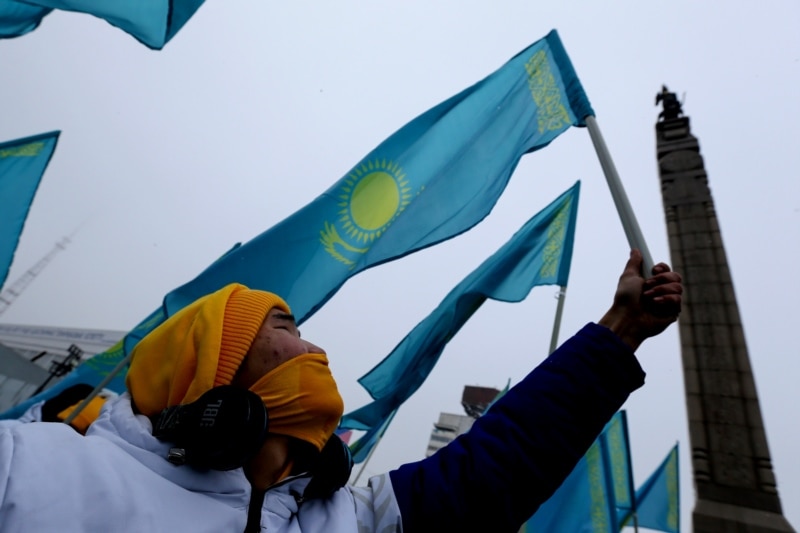
Correct. Energy-rich Kazakhstan, today Central Asia’s most economically powerful state, declared its complete independence on December 16, 1991. The date was chosen to coincide with the anniversary of 1986 protests against Moscow’s selection of a non-Kazakh head of the republic’s Communist Party. A later Kazakh Communist Party boss, Nursultan Nazarbaev, now termed “elbasy” or “leader of the nation,” ruled Kazakhstan as president from 1991 until 2019.

Incorrect. The answer is Kazakhstan. It declared its complete independence from the USSR on December 16, 1991. Though many Belarusians and Russians remained sympathetic to the Soviet Union, the Supreme Soviets of the Belarusian and Russian Soviet Socialist Republics already had declared their independence from the USSR.

Incorrect. The answer is Armenia. In May 1990, members of the Armenian National Movement (ANM), a pro-democracy group that supported calls for the Azerbaijani region of Nagorno-Karabakh to unite with Armenia, secured a majority in Armenia’s Supreme Soviet and would lead the country to independence. The ANM’s leader, philologist Levon Ter-Petrosian, became post-Soviet Armenia’s first president in 1991.
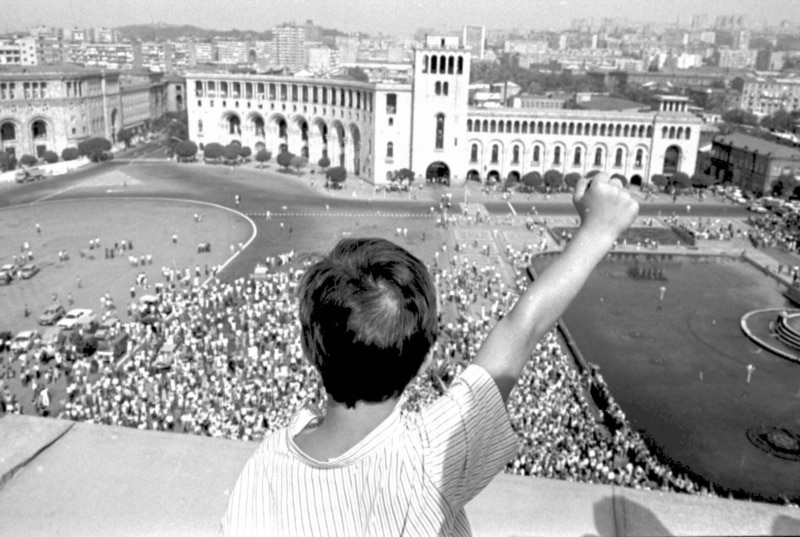
Incorrect. The answer is Armenia. In May 1990, members of the Armenian National Movement (ANM), a pro-democracy group that supported calls for the Azerbaijani region of Nagorno-Karabakh to unite with Armenia, secured a majority in Armenia’s Supreme Soviet and would lead the country to independence. The ANM’s leader, philologist Levon Ter-Petrosian, became post-Soviet Armenia’s first president in 1991.

Correct. In May 1990, members of the Armenian National Movement (ANM), a pro-democracy group that supported calls for the Azerbaijani region of Nagorno-Karabakh to unite with Armenia, secured a majority in Armenia’s Supreme Soviet and would lead the country to independence. The ANM’s leader, philologist Levon Ter-Petrosian, became post-Soviet Armenia’s first president in 1991.

Incorrect. Lithuania was the first, on March 11, 1990. Latvia declared its independence on May 4, 1990 and Estonia on August 21, 1990. All three republics had been independent countries from 1918 until their annexation by the USSR during World War II. During the Gorbachev era, when restraints on freedom of speech and assembly began to lessen, Baltic national movements formed and worked for a return to independence.

Incorrect. Lithuania was the first, on March 11, 1990. Latvia declared its independence on May 4, 1990 and Estonia on August 21, 1990. All three republics had been independent countries from 1918 until their annexation by the USSR during World War II. During the Gorbachev era, when restraints on freedom of speech and assembly began to lessen, Baltic national movements formed and worked for a return to independence.

Correct. Estonia, Latvia, and Lithuania all had been independent countries from 1918 until their annexation by the USSR during World War II. Resentment about their annexation by the Soviet Union had long simmered under the surface. During the Gorbachev era, when restraints on freedom of speech and assembly began to lessen, Baltic national movements formed. On March 11, 1990. Lithuania because the first of the three Baltic republics to declare its independence.

Incorrect. In his appeal, Kyrgyzstan’s President Askar Akayev, a former head of the Kyrgyz Academy of Sciences, asserted that “We have no army, but we will defend our sovereignty and our freedom.” Western officials and media in the early 1990s hailed Kyrgyzstan as an “island of democracy” and Akayev as a “remarkable” leader who understood democracy. But rampant corruption and crackdowns on critics eventually led to Akayev’s removal from power during Kyrgyzstan’s 2005 Tulip Revolution.

Correct. In his appeal, Akayev, a former head of the Kyrgyz Academy of Sciences, asserted that “We have no army, but we will defend our sovereignty and our freedom.” Western officials and media in the early 1990s hailed Kyrgyzstan as an “island of democracy” and Akayev as a “remarkable” leader who understood democracy. But rampant corruption and crackdowns on critics eventually led to Akayev’s removal from power during Kyrgyzstan’s 2005 Tulip Revolution.

Incorrect. In his appeal, Kyrgyzstan’s President Askar Akayev, a former head of the Kyrgyz Academy of Sciences, asserted that “We have no army, but we will defend our sovereignty and our freedom.” Western officials and media in the early 1990s hailed Kyrgyzstan as an “island of democracy” and Akayev as a “remarkable” leader who understood democracy. But rampant corruption and crackdowns on critics eventually led to Akayev’s removal from power during Kyrgyzstan’s 2005 Tulip Revolution.

Correct. Turkmenistan’s President Niyazov was declared president for life and presided over an unabashedly authoritarian state until his death in 2006. Although the Niyazov personality cult may have subsided somewhat since his death, his successor, President Gurbanguly Berdimuhamedov, still has scant tolerance for any political opposition or an independent and critical press.
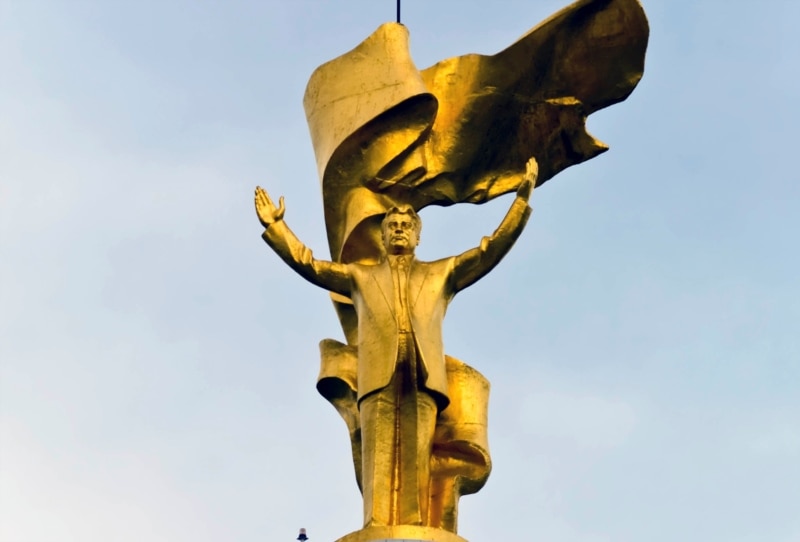
Incorrect. The answer is Turkmenistan’s President Saparmurat Niyazov. He was declared president for life and presided over an unabashedly authoritarian state until his death in 2006. Although the Niyazov personality cult may have subsided somewhat since his death, his successor, President Gurbanguly Berdimuhamedov, still has scant tolerance for any political opposition or an independent and critical press.

Incorrect. The answer is Turkmenistan’s President Saparmurat Niyazov. He was declared president for life and presided over an unabashedly authoritarian state until his death in 2006. Although the Niyazov personality cult may have subsided somewhat since his death, his successor, President Gurbanguly Berdimuhamedov, still has scant tolerance for any political opposition or an independent and critical press.

Incorrect. Mu Isamaa On Minu Arm (My Fatherland Is My Beloved) was called the unofficial anthem of Soviet-era Estonia. It debuted under Tsarist Russian rule in 1869, eluded Soviet censors’ notice in a 1947 song festival, and went on to become one of many folk songs sung at public protests against Soviet rule in the late 1980s.
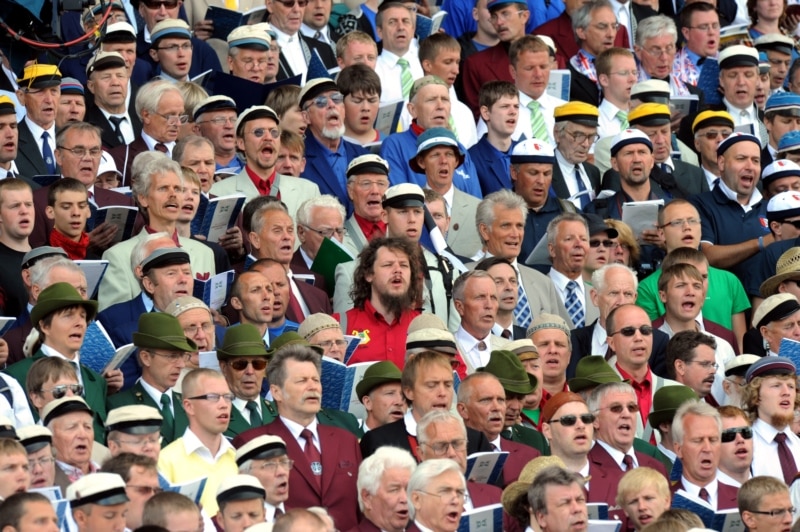
Correct. Mu Isamaa On Minu Arm (My Fatherland Is My Beloved) was called the unofficial anthem of Soviet-era Estonia. It debuted under Tsarist Russian rule in 1869, eluded Soviet censors’ notice in a 1947 song festival, and went on to become one of many folk songs sung at public protests against Soviet rule in the late 1980s.

Incorrect. Mu Isamaa On Minu Arm (My Fatherland Is My Beloved) was called the unofficial anthem of Soviet-era Estonia. It debuted under Tsarist Russian rule in 1869, eluded Soviet censors’ notice in a 1947 song festival, and went on to become one of many folk songs sung at public protests against Soviet rule in the late 1980s.

Incorrect. The answer is Moldova with Romania. Most of modern-day Moldova was once part of Romania and economic and cultural ties between the two countries remain strong. Some advocates for unification assert that joining Romania, a member of the European Union and NATO, would turbo-boost Moldova’s economic and democratic development, but as yet, no powerful national movement for unification with Romania has emerged.
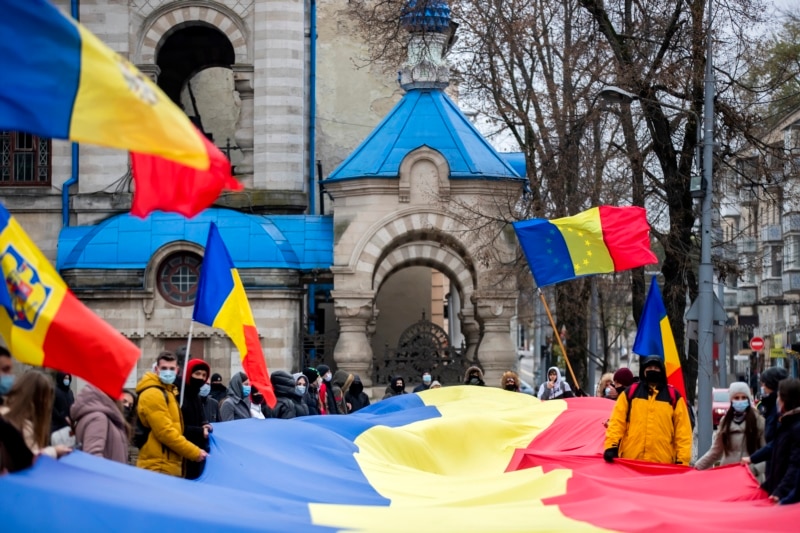
Incorrect. The answer is Moldova with Romania. Most of modern-day Moldova was once part of Romania and economic and cultural ties between the two countries remain strong. Some advocates for unification assert that joining Romania, a member of the European Union and NATO, would turbo-boost Moldova’s economic and democratic development, but as yet, no powerful national movement for unification with Romania has emerged.

Correct. Most of modern-day Moldova was once part of Romania and economic and cultural ties between the two countries remain strong. Some advocates for unification assert that joining Romania, a member of the European Union and NATO, would turbo-boost Moldova’s economic and democratic development, but as yet, no powerful national movement for unification with Romania has emerged.

Incorrect. On this date in 1989, Soviet forces brutally responded to a demonstration in downtown Tbilisi against both Soviet rule and Abkhaz separatism. At least 20 unarmed people were killed in the crackdown. The violence galvanized public support for the restoration of Georgian sovereignty, lost when Russia’s Red Army invaded in 1921.
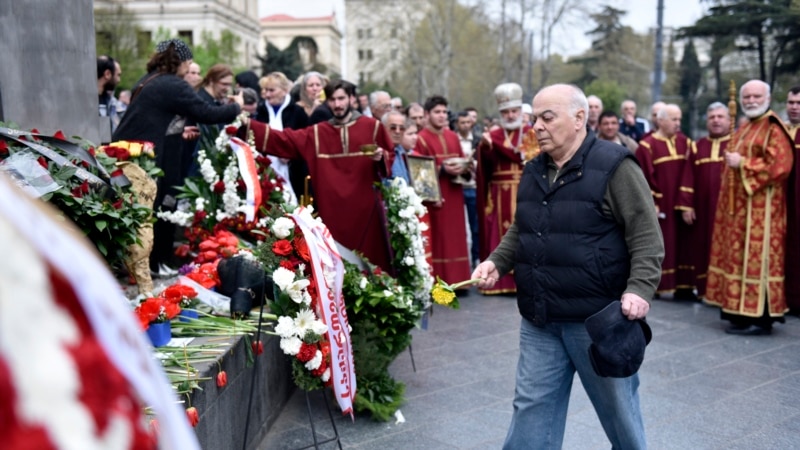
Incorrect. On this date in 1989, Soviet forces brutally responded to a demonstration in downtown Tbilisi against both Soviet rule and Abkhaz separatism. At least 20 unarmed people were killed in the crackdown. The violence galvanized public support for the restoration of Georgian sovereignty, lost when Russia’s Red Army invaded in 1921.

Correct. Each year on April 9, Georgians lay flowers at a memorial to the victims of the 1989 violence that stands in front of the Georgian parliament. The bloodshed galvanized public support for the restoration of Georgian sovereignty, lost when Russia’s Red Army invaded in 1921.

Incorrect. No, the answer is Iceland. The United States recognized Latvia’s independence from the Soviet Union on September 2, 1991, roughly a week and a half after Iceland. Though Sweden was the first Western country to set up a permanent diplomatic representation in Latvia, Iceland recognized Latvia’s sovereignty on the very day of the Baltic republic’s declaration of independence – August 22, 1991.
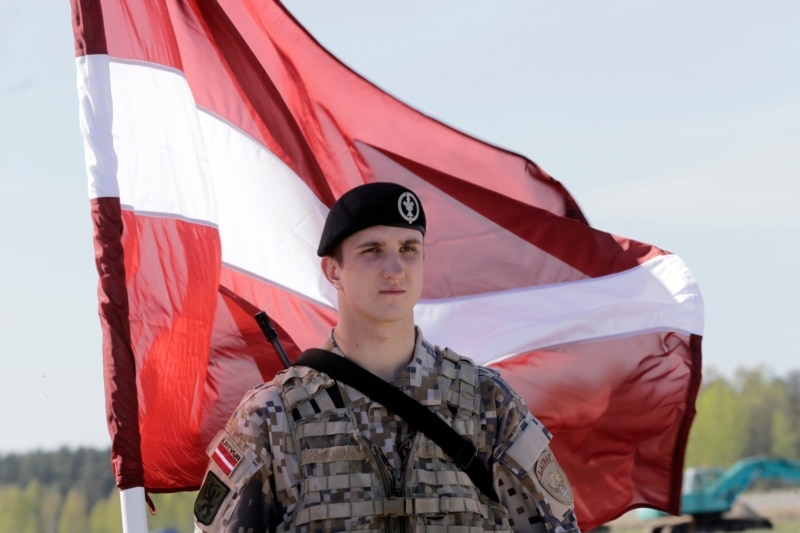
Correct. Aside from hosting the 1986 Gorbachev-Reagan summit, Iceland’s foreign policy toward the Soviet Union had largely escaped public notice, but the Nordic country took to recognizing the independence of former Soviet republics with alacrity. In February 1991, it also became the first foreign state to recognize Lithuania’s independence.

Incorrect. No, the answer is Iceland. The United States recognized Latvia’s independence from the Soviet Union on September 2, 1991, roughly a week and a half after Iceland. Though Sweden was the first Western country to set up a permanent diplomatic representation in Latvia, Iceland recognized Latvia’s sovereignty on the very day of the Baltic republic’s declaration of independence – August 22, 1991.

Correct. Even though the majority of its population used Russian, Belarusian was Belarus’ only official language from 1991 until 1994. (Belarus’ 1990 Declaration of Sovereignty established Belarusian’s status.) In 1996, however, under President Alyaksandr Lukashenka, both Russian and Belarusian were declared official languages in the country’s constitution.
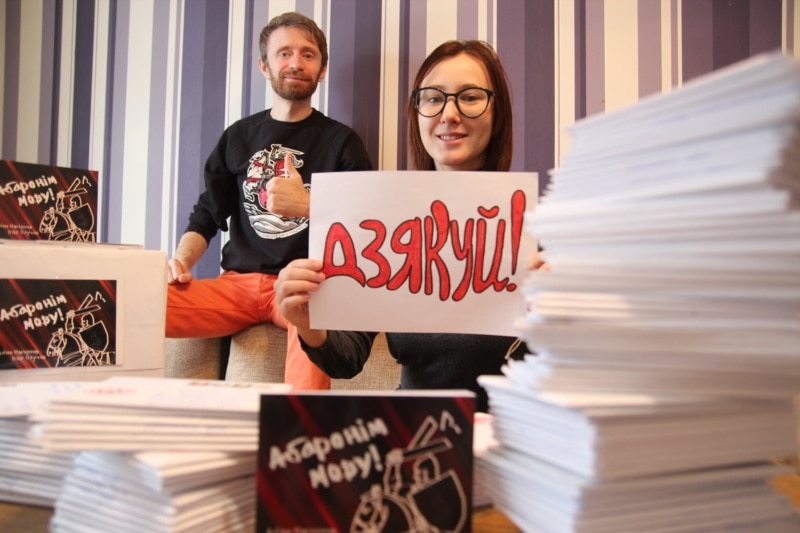
Incorrect. The answer is Belarusian. Even though the majority of its population used Russian, Belarusian was Belarus’ only official language from 1991 until 1994. (Belarus’ 1990 Declaration of Sovereignty established Belarusian’s status.) In 1996, however, under President Alyaksandr Lukashenka, both Russian and Belarusian were declared official languages in the country’s constitution.

Incorrect. The answer is Belarusian. Even though the majority of its population used Russian, Belarusian was Belarus’ only official language from 1991 until 1994. (Belarus’ 1990 Declaration of Sovereignty established Belarusian’s status.) In 1996, however, under President Alyaksandr Lukashenka, both Russian and Belarusian were declared official languages in the country’s constitution.

Incorrect. The answer is Azerbaijan. The Soviet army’s January 19-20, 1990 crackdown on protests in Baku, Azerbaijan over the Kremlin’s failure to end the conflict over Nagorno-Karabakh led to the deaths of an estimated 133 people and several hundred wounded. The army intervened after a purge of ethnic Armenians in Baku, but their actions only solidified interest in breaking with the USSR. “The army in which we used to serve suddenly turned against us. And it was already impossible to believe in such an army,” one onlooker, Shahbaz Huduoglu, told Current Time.
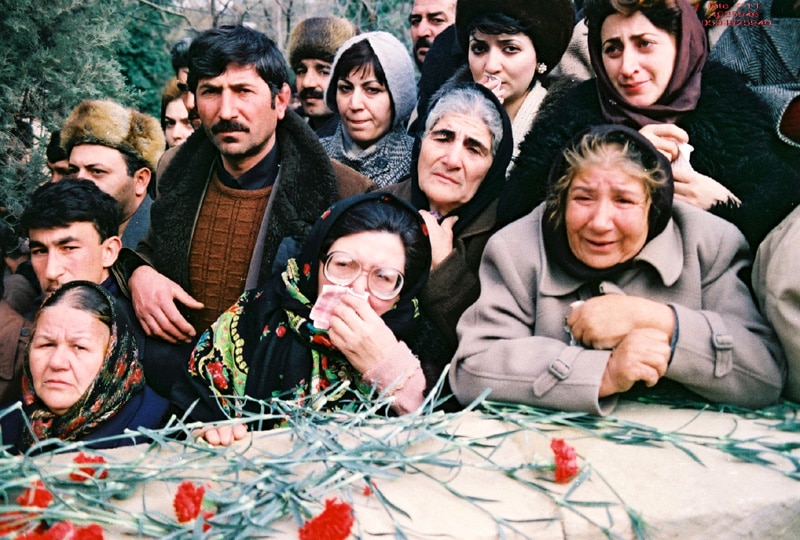
Correct. The Soviet army’s January 19-20, 1990 crackdown on protests in Baku, Azerbaijan over the Kremlin’s failure to end the conflict over Nagorno-Karabakh led to the deaths of an estimated 133 people and several hundred wounded. The army intervened after a purge of ethnic Armenians in Baku, but their actions only solidified interest in breaking with the USSR. “The army in which we used to serve suddenly turned against us. And it was already impossible to believe in such an army,” one onlooker, Shahbaz Huduoglu, told Current Time.

Incorrect. The answer is Azerbaijan. The Soviet army’s January 19-20, 1990 crackdown on protests in Baku, Azerbaijan over the Kremlin’s failure to end the conflict over Nagorno-Karabakh led to the deaths of an estimated 133 people and several hundred wounded. The army intervened after a purge of ethnic Armenians in Baku, but their actions only solidified interest in breaking with the USSR. “The army in which we used to serve suddenly turned against us. And it was already impossible to believe in such an army,” one onlooker, Shahbaz Huduoglu, told Current Time.

Correct. Poet Muhammad Solih, head of the Erk (Freedom) party, advocated a separation of powers, guarantees for freedom of speech and other civil rights, and an embrace of market capitalism. His candidacy would prove the last genuine opposition challenge to Karimov, a former Communist Party boss who ruled Uzbekistan until 2016. Solih migrated to Turkey in the early 1990s as his party came under increasing state pressure.
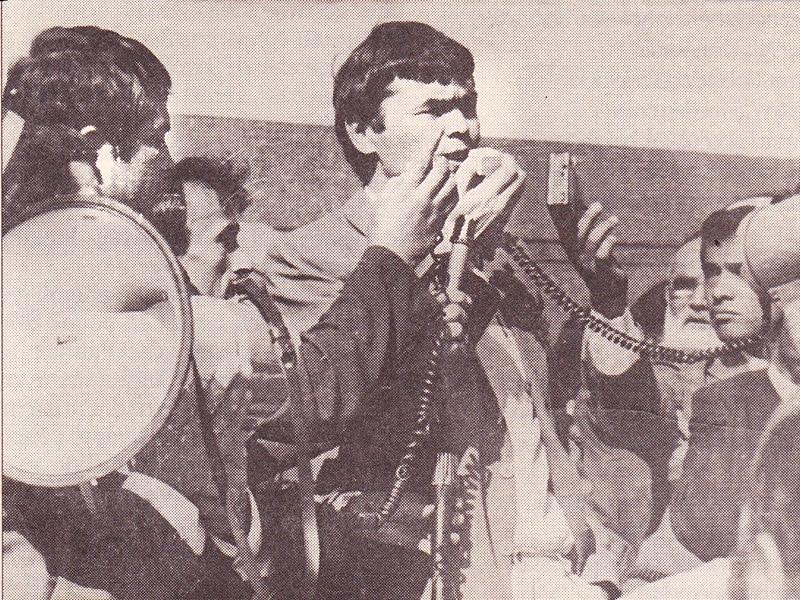
Incorrect. Poet Muhammad Solih, head of the Erk (Freedom) party, was Karimov’s’ challenger. Solih advocated a separation of powers, guarantees for freedom of speech and other civil rights, and an embrace of market capitalism. His candidacy would prove the last genuine opposition challenge to Karimov, a former Communist Party boss who ruled Uzbekistan until 2016. Solih migrated to Turkey in the early 1990s as his party came under increasing state pressure.

Incorrect. Poet Muhammad Solih, head of the Erk (Freedom) party, was Karimov’s’ challenger. Solih advocated a separation of powers, guarantees for freedom of speech and other civil rights, and an embrace of market capitalism. His candidacy would prove the last genuine opposition challenge to Karimov, a former Communist Party boss who ruled Uzbekistan until 2016. Solih migrated to Turkey in the early 1990s as his party came under increasing state pressure.

Correct. President Yeltsin issued the decree on August 23, 1991, two days after the coup plotters had been arrested. Explaining his decision, Yeltsin, who had risen to political power through the ranks of the Communist Party, later noted in his book, Notes of the President, that “The party remained, the idea remained, but, as a state, militant ideology, communism is a thing of the past.”
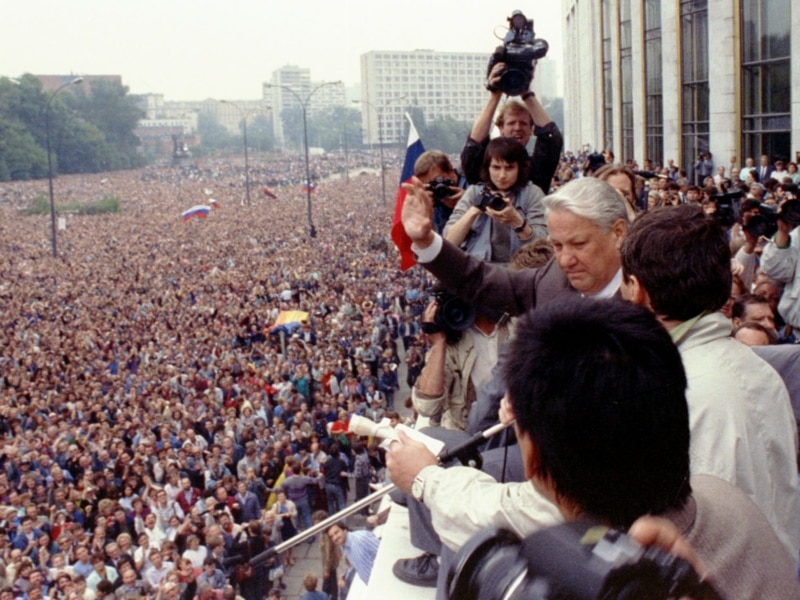
Incorrect. On August 23, 1991, two days after the coup plotters’ arrest, President Yeltsin ordered a suspension of the Communist Party’s activities within the Russian Soviet Federative Socialist Republic (RSFSR). Explaining his decision, Yeltsin, who had risen to political power through the ranks of the Communist Party, later noted in his book, Notes of the President, that “The party remained, the idea remained, but, as a state, militant ideology, communism is a thing of the past.”

Incorrect. On August 23, 1991, two days after the coup plotters’ arrest, President Yeltsin ordered a suspension of the Communist Party’s activities within the Russian Soviet Federative Socialist Republic (RSFSR). Explaining his decision, Yeltsin, who had risen to political power through the ranks of the Communist Party, later noted in his book, Notes of the President, that “The party remained, the idea remained, but, as a state, militant ideology, communism is a thing of the past.”

Incorrect. The answer is Ukraine. Dubbed the “Chicken Kiev” speech by U.S. columnist William Safire, the text also asserted that the United States would not assist “those who promote a suicidal nationalism based upon ethnic hatred.” One unnamed diplomat in Kyiv told The Los Angeles Times that the remarks went over about as well as cod liver oil.
Some analysts interpreted Bush’s words as a sign that the U.S. preferred to support Soviet President Mikhail Gorbachev, a known entity, rather than to encourage independence movements. President Bush countered that he only intended to encourage restraint.
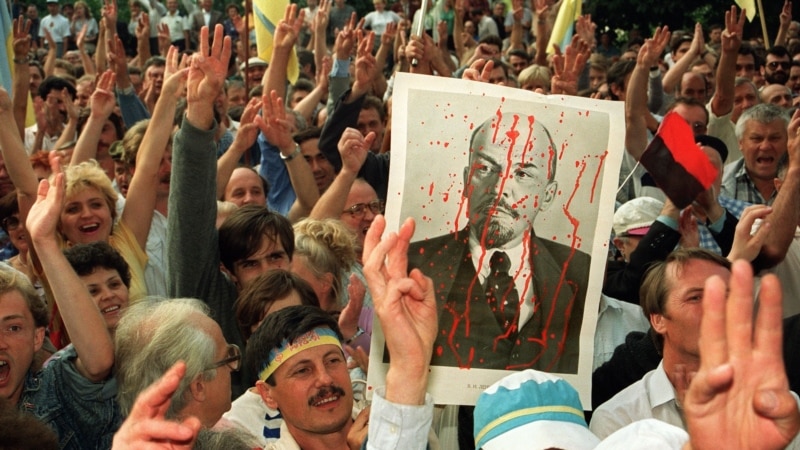
Incorrect. The answer is Ukraine. Dubbed the “Chicken Kiev” speech by U.S. columnist William Safire, the text also asserted that the United States would not assist “those who promote a suicidal nationalism based upon ethnic hatred.” One unnamed diplomat in Kyiv told The Los Angeles Times that the remarks went over about as well as cod liver oil.

Some analysts interpreted Bush’s words as a sign that the U.S. preferred to support Soviet President Mikhail Gorbachev, a known entity, rather than to encourage independence movements. President Bush countered that he only intended to encourage restraint.
Correct. Dubbed the “Chicken Kiev” speech by U.S. columnist William Safire, the text also asserted that the United States would not assist “those who promote a suicidal nationalism based upon ethnic hatred.” One unnamed diplomat in Kyiv told The Los Angeles Times that the remarks went over about as well as cod liver oil.
Some analysts interpreted Bush’s words as a sign that the U.S. preferred to support Soviet President Mikhail Gorbachev, a known entity, rather than to encourage independence movements. President Bush countered that he only intended to encourage restraint.

Incorrect. The answer is Tajik President Emomali Rahmon, who has ruled Tajikistan since 1992, the longest rule of any post-Soviet leader. Although the 69-year-old Rahmon has faced rivals for the presidency, he invariably wins the overwhelming majority of the vote – a result critics charge reflects his authoritarianism, but supporters insist reflects respect for the “Leader of the Nation.”
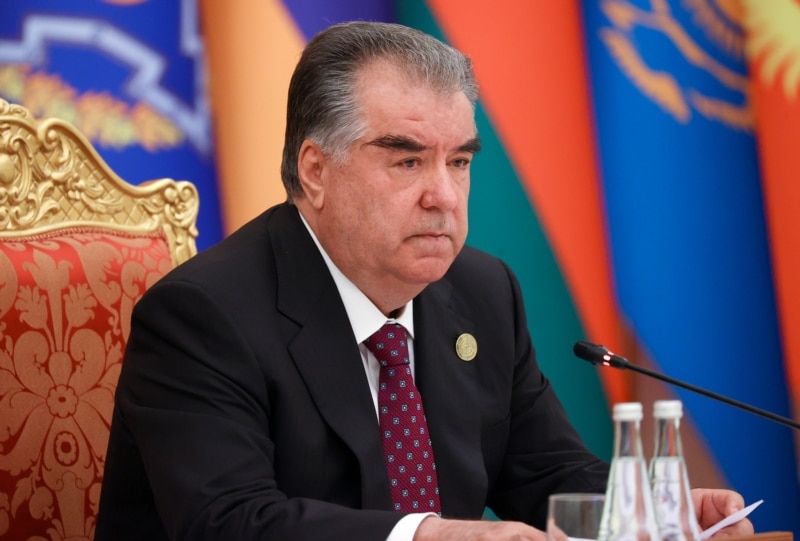
Incorrect. The answer is Tajik President Emomali Rahmon, who has ruled Tajikistan since 1992, the longest rule of any post-Soviet leader. Although the 69-year-old Rahmon has faced rivals for the presidency, he invariably wins the overwhelming majority of the vote – a result critics charge reflects his authoritarianism, but supporters insist reflects respect for the “Leader of the Nation.”

Correct. Tajik President Emomali Rahmon has ruled Tajikistan since 1992, the longest rule of any post-Soviet leader. Although the 69-year-old Rahmon has faced rivals for the presidency, he invariably wins the overwhelming majority of the vote – a result critics charge reflects his authoritarianism, but supporters insist reflects respect for the “Leader of the Nation.”

